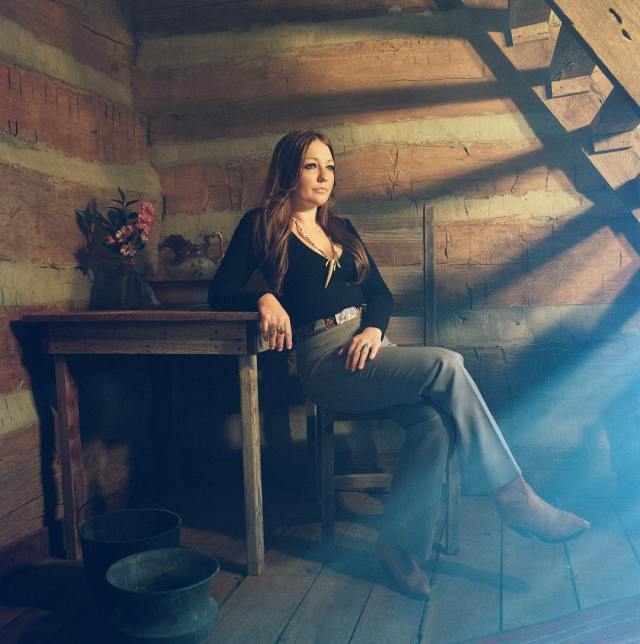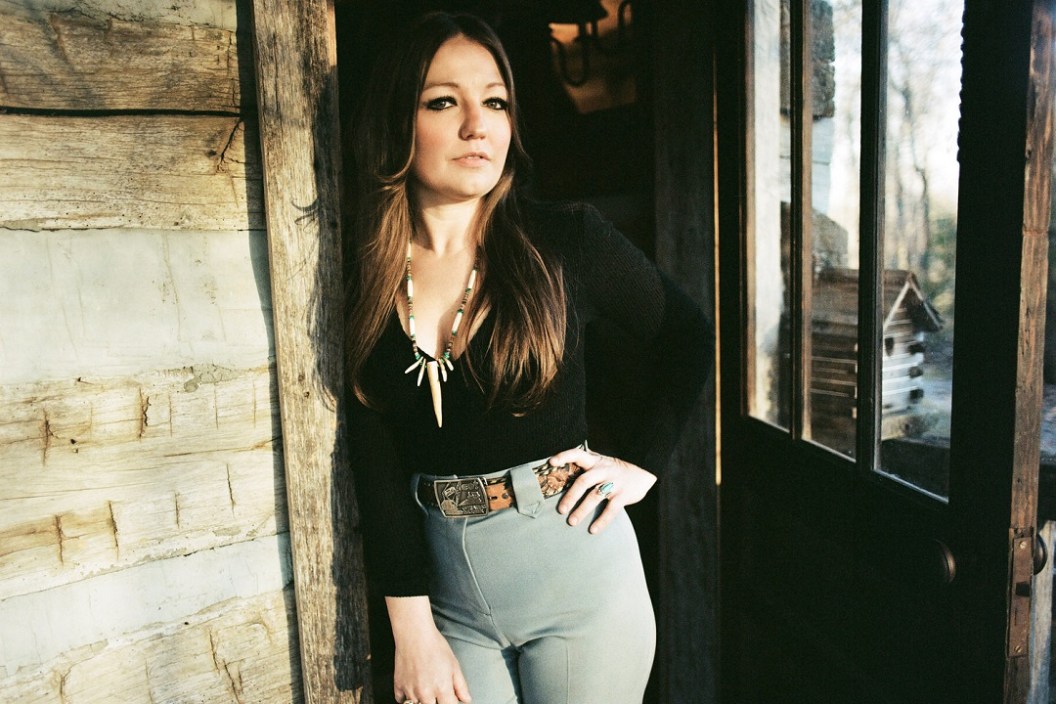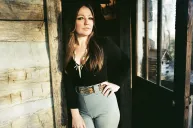[dropcap]K[/dropcap]elsey Waldon always knew she'd be a country singer. Raised in rural western Kentucky, the singer-songwriter has been surrounded by country music for as long as she can remember, from the '80s and '90s radio hits of Keith Whitley and Ricky Skaggs to Pam Tillis and Patty Loveless shows at Paducah's now defunct Executive Inn, or "Big E."
"My mom and my granny, they're always like, 'You used to say you were gonna be a famous country singer,'" Waldon says, laughing. "I was saying it since I was a kid. Not that I'm a famous country singer — I don't even know what that means anymore in this time and age, but obviously I've got a career. That's the most important thing to me. But when I was young ... people can't even remember a time when I didn't say that."
When plotting her future career, Waldon looked toward fellow Kentuckians, like Pikeville-native Patty Loveless, another artist who never strayed far from her Bluegrass State roots.
"Patty was definitely a huge influence. I saw a lot of myself in her, especially as a young girl from Kentucky that loved music and loved country music," Waldon says. "It was like, wow, she can do it. That means maybe I can do it, being where I'm from."
Where she's from — Monkey's Eyebrow, Kentucky — plays a prominent role on Waldon's new album White Noise/White Lines (out Oct. 4), her third album overall and first release since being signed to John Prine's Oh Boy Records. ("One of my biggest songwriting heroes and heroes in general," Waldon says of Prine.)
"I think that will probably come across no matter what I do — no matter how many records I make. [Kentucky is] just a very inspirational place. It's a very special place, culturally. I feel like it's also misunderstood by the rest of the world in a way. I wanted to show the beauty in that as well and maybe some of the ugly — because that's life. It's all about balance," Waldon says. "Kentucky will always be an inspiration to me. It doesn't leave you."

Laura E. Partain
Kentucky is weaved into the fabric of the album, from the title track, which features a Chickasaw Tribe chant recorded with the tribe's permission at Waldon's father's hunting camp, to "Black Patch," which tells the story of the 1904 Black Patch Tobacco War, a period of civil unrest when Kentucky farmers rose up against a monopolistic tobacco company.
"It's also a song about sticking up for local farmers," Waldon says. "It's a story about big tobacco coming in and manipulating the prices and kind of destroying the businesses of these local farmers. In a way, it's talking about economic pressure as well. But I had always wanted to write a story about that and it's a story that's very specific to the region that I'm from."
Waldon details her upbringing on the intimate "Kentucky, 1988," which is preceded on the album by a voicemail from her father.
"This is my DNA/ No matter how far I get away," Waldon sings. "There's just some things that won't ever change/ Kentucky, 1988."
"I just didn't really have my 'Coal Miner's Daughter'," Waldon says. "People might think they know me but they don't know the details of my upbringing. I hadn't written that song yet. It was kind of staple of the record... This one felt like it was a closer glimpse into the story of my life and the way I feel about everything."
Read More: The 12 Best Country Songs About Kentucky
On The Staple Singers-inspired "Sunday's Children," Waldon takes aim at those who attempt to use religion in the name of hate.
"I think you can find God in just being your truest self," Waldon says. "It doesn't always have to have rules. It doesn't always have to have this judgment or this self-righteousness. It's really about being humble and aware. It's a song of love, I think, and honestly, it was very much a stream of consciousness. I didn't mean to sound like a preacher. A lot of times I have to write songs to make sense of things to myself."
Waldon closes the album with a cover of banjo player and Appalachian mountain singer Ola Belle Reed's "My Epitaph." While she says she didn't plan on including a cover on the record, the song took on a special meaning while she was on tour in Montana.
"We were driving down this highway out in the middle of nowhere. There was all this ash floating around in the sky from these wildfires," Waldon says. "Everyone was asleep in the car and I was definitely having a moment where — it just gets scary. I felt very alone in a way. Like, what is going to happen to me, what's going to happen with my career? Is this even going to work out? And my Ola Belle CD was playing in the van and that song came on and I just had this calming peace come over me. I was just like 'I don't care what happens. This is what I'm meant to do. This is what I'm gonna do.'"
For more information on Kelsey Waldon or to see a full list of her upcoming tour dates, visit here.
Now Watch: Every Country Fan Should Visit Butcher Holler, Kentucky




